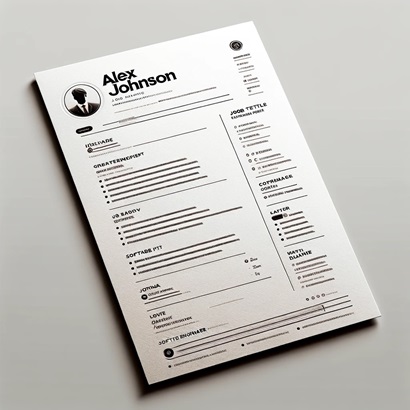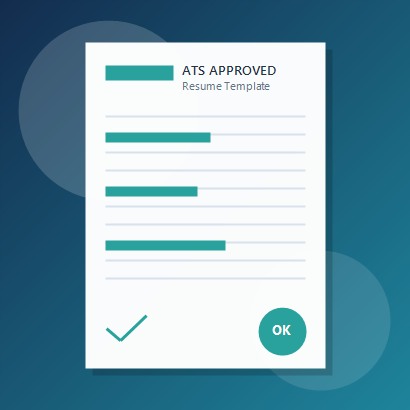
Amidst the current job market, where first impressions are increasingly made through screens rather than handshakes, the importance of presenting oneself effectively on paper cannot be overstated. At the heart of this presentation lies a crucial, often overlooked element: the job title. This seemingly simple line on a resume holds the key to unlocking doors of opportunity, acting as a beacon for matching algorithms that stand guard at the gates of your next job opportunity. In this article, we will delve into why a common, recognizable job title is not just a label, but a strategic tool in the job search arsenal, and how Resume Optimizer Pro can help in optimizing this aspect of your resume.
The Algorithmic Matchmakers of the Job Market
The first hurdle in any job application process today is often an invisible one: the applicant tracking system (ATS), a type of matching algorithm used by employers to filter resumes. These systems are designed to scan resumes for keywords and phrases that match the job description, including, critically, the job title. The reality is stark; a resume that does not speak the language of these algorithms is likely to be overlooked, regardless of the candidate's qualifications.
The Importance of a Common Job Title
A common job title serves as a clear, immediate indicator of your professional identity. When a resume's job title aligns with the one in the job posting, it signals to the algorithm that there is a match, increasing the chances of the resume passing through the digital gatekeeper to reach human eyes. The challenge arises when individuals hold or have held job titles that are unique, outdated, or simply different from the standard nomenclature used in their industry.

The Pitfalls of Obscure Job Titles
Obscure job titles can be a significant barrier in the job application process. For example, a "Chief Happiness Officer" might struggle to be recognized by an algorithm looking for a "Human Resources Manager," despite the overlap in roles and responsibilities. This mismatch can result in qualified candidates being inadvertently filtered out of the selection process, not due to a lack of skills or experience, but because of a linguistic mismatch between their resume and the job description.
Tailoring Your Title: A Strategy for Success
The solution lies in strategically tailoring your job title on your resume to match the job you're applying for, without straying from the truth of your professional experience. If you are a "Lead Software Developer" applying for a "Senior Software Engineer" position, updating your job title to reflect the latter can significantly improve your resume's visibility to matching algorithms. This does not mean fabricating experience, but rather translating your existing role into the language of the job market you're entering.
Case in Point
Consider Sarah, a marketing professional with extensive experience as a "Brand Storyteller." When applying for a "Marketing Manager" position, she found her applications were often overlooked. After updating her job title to "Marketing Manager" to reflect the strategic and managerial aspects of her role, she saw a marked improvement in her application response rate. This simple change helped her resume get past the initial algorithmic screening and into the hands of hiring managers.
Navigating the Nuances: When to Make the Change
It's essential to approach the process of updating job titles on your resume with ethical considerations in mind. The goal is to ensure that your professional experience is understood and valued, not to misrepresent your background. When deciding whether to update a job title, consider the following:
- Relevance: Does the updated title accurately reflect your duties and responsibilities?
- Recognition: Is the updated title commonly recognized and understood in your industry?
- Resonance: Does the updated title align with the job titles used in the job postings you're targeting?
How Resume Optimizer Pro Can Help
At Resume Optimizer Pro, we understand the challenges job seekers face in navigating the algorithmic landscapes of the modern job market. By inputting the job post you're targeting, our system can detect the job title and suggest how you might update yours to improve your resume's compatibility with matching algorithms. This personalized approach ensures that your resume not only reflects your professional identity accurately but also speaks the language of potential employers, maximizing your chances of making it through the initial screening process.
In Conclusion
The job title on your resume is more than a label; it's a strategic tool that, when optimized, can significantly enhance your visibility to both algorithms and hiring managers. In an age where the first round of interviews is often conducted by software, understanding and adapting to the nuances of job titles can be the key to unlocking the next step in your career. Resume Optimizer Pro can assist you in this process, offering tailored advice and insights to help you navigate the algorithmic gateways of the job market.


